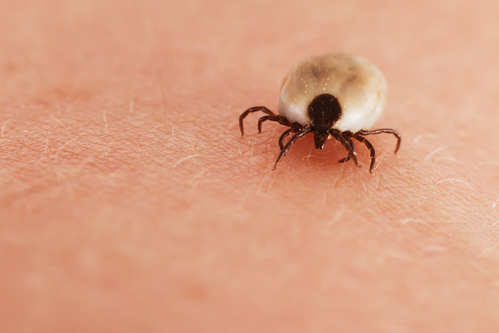Fewer people were bitten by ticks last year, research shows


The number of recorded tick bites went down by a third last year compared to 2021, public health institute RIVM has said.
The institute is gauging incidences of tick bites with Wageningen University and website Tekenradar, using a group of people who report each week if they have been bitten or not.
‘These reports will give us a much better idea of when tick bites rise of fall,’ head researchers Kees van den Wijngaard (RIVM) and Arnold van Vliet (WUR), said. ‘The more people tell us on a weekly basis, the more accurate we can be.’
Regular reporting may also help explain last year’s drop in recorded bites. Tick bites fell below the average in all provinces in 2022 except in Flevoland. Gelderland clocked up the most bites with 887 followed by Noord-Brabant with 554 and Noord-Holland with 490.
Bites from infected ticks can cause Lyme’s disease. The quicker the tick is removed, the smaller the chances of infection. Of the estimated 1.5 million people who are bitten by ticks each year some 27,000 contract Lyme’s disease.
Between 1000 and 1500 people go on to develop long term problems as a result, including joint pain, heart disease and lack of concentration, a large scale investigation by RIVM has shown.
Thank you for donating to DutchNews.nl.
We could not provide the Dutch News service, and keep it free of charge, without the generous support of our readers. Your donations allow us to report on issues you tell us matter, and provide you with a summary of the most important Dutch news each day.
Make a donation